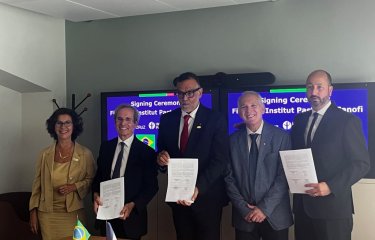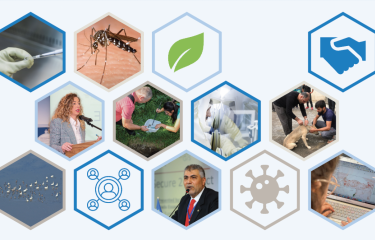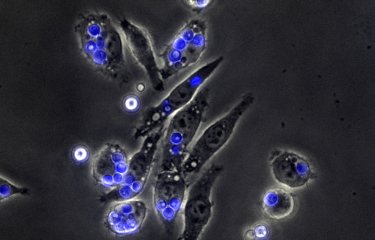With a master’s-level degree in the biochemistry of nutrition, Elliot Rakotomanana is currently pursuing his studies in the social anthropology of health. As a researcher at the Institut Pasteur in Madagascar, this 37-year-old is participating in the AFRIBIOTA research program, an innovative multidisciplinary project that seeks better understanding of chronic childhood malnutrition and pediatric environmental enteropathy (PEE).
"In Madagascar, almost half of children under 5 are affected by chronic malnutrition," a situation that amply justifies Elliot Rakotomanana’s dedication to the problem of malnutrition. For his family, "science is something very important." His father is a forestry agent, deeply committed to protecting the island’s biodiversity, and one of his brothers specializes in animal biology. Elliot initially studied the biochemistry of nutrition, graduating with honors, and subsequently specialized in community nutrition. He began working with the Italian NGO Reggio Terzo Mondo on nutritional support projects for primary school pupils for moderately malnourished children, vulnerable children, orphans and people living with HIV.
« studying the issue of nutrition in one of the most important Malagasy research institution really helped me to progress in my learning»
As a student researcher, he subsequently trained at Hiroshima University, simultaneously taking intensive Japanese courses. Following this training, he worked with the Japan International Cooperation Agency (JICA). Over the course of these varied experiences, he enjoyed the "public health approach", conducting field surveys and working with foreign teams. He continues to enjoy this global engagement through the Institut Pasteur International Network, observing "It's dangerous to remain isolated".
In 2014, Elliot Rakotomanana began working for the Institut Pasteur de Madagascar in the Epidemiology and Clinical Research Unit. As the national coordinator of a socio-anthropological study on the identification of socio-cultural determinants of stunting, he found both a vocation and a research home. "Working on the issue of nutrition for one of the most important Malagasy institutions in the field of research has really allowed me to progress in my learning," says Elliot Rakotomanana.
Anthropology a precious research approach
This young researcher was integrated in 2016 into the anthropological sub-study of AFRIBIOTA, a multidisciplinary research program that seeks better characterization of an inflammatory gut syndrome linked to chronic infant malnutrition, pediatric environmental enteropathy. He pursued studies at the University of Bordeaux, where in September 2017, he was awarded a Master degree in social anthropology. As part of this degree, he shared the daily lives of two families from very poor Antananarivo neighborhoods and with children with growth delays. He focused his work on the children's environment, hygiene, eating habits and the relations with the relatives.

Caption: Elliot Rakotomanana shares the lives of disadvantaged families in Madagascar to better understand the determinants of malnutrition.
In December 2017, he returned to the field, to deepen this information and observations with this time some sixty families. "Many households in these neighborhoods share the same latrines, the maintenance of which has a significant cost" explains the anthropologist "some homes even refuse their use for fear of being soiled by faeces that according to local beliefs lead to misfortune in everyday life. We seek to describe the implication that this can have on the different practices around hygiene and food". This information, which takes into account the social, economic and cultural context, complements those obtained by the traditional disciplines of biomedical research.
With the help of Dr. Tamara Giles-Vernick, Elliot Rakotomanana will soon implement the method "photovoice", as part of this anthropological sub-study. "We will work with young Malagasy and ask them to take pictures describing their perception of malnutrition in their environment. Developed over the past decades, this participatory method really makes it possible to highlight the representations and the knowledge of the populations. We have already applied it in our group for research on plague and malaria.
Next step, still within the AFRIBIOTA project, Elliot Rakotomanana wishes to begin a doctoral thesis in medical anthropology. "It's important for me to strengthen my knowledge to help better understand malnutrition issues," concludes the researcher.
Elliot Rakotomanana, anthropologist at the Institut Pasteur de Madagascar

- 1980 : Birth of Elliot Fara Nandrasana Rakotomanana in Antananarivo
- 2006 : Postgraduate degree in Biochemistry applied to food sciences and nutrition, University of Antananarivo
- Depuis 2014 : Socio-anthropologist specialized in nutrition and health at the Institut Pasteur de Madagascar
- 2016- 2017 : Master degree in Social Anthropology, University of Bordeaux





